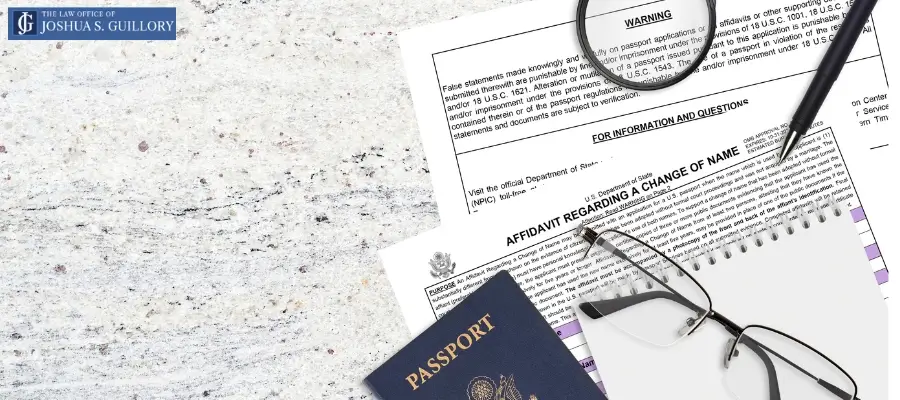|
|
Last Modified on Nov 12, 2024
Divorce is known to be a lengthy and stressful process, and so many divorcing couples want to know how they can make the process quicker. So, how long does a divorce take in Louisiana? There are many considerations you can make about a couple’s unique financial and personal circumstances, so there is no clear answer to this. Spouses should consider the required waiting periods and different methods of divorce, some of which are generally faster than others.
Required Waiting Periods in Louisiana Divorces
Louisiana has two articles under which couples can file for divorce, depending on whether they lived separately before filing for divorce or not. In either case, the minimum waiting periods must be met. These waiting periods are:
- 180 days if you do not have any minor children
- 365 days if you have minor children when the rule to show cause or petition is filed
Couples must provide proof that they met the requirements prior to filing the rule to show cause or prior to filing the petition. When couples file on no-fault grounds, the divorce is granted once they meet waiting period requirements.
There are also fault-based grounds for divorce, which do not have the same waiting period. A spouse can file this divorce without needing to separate if the other spouse committed adultery, committed physical or sexual abuse against the spouse or their children, had a protective order placed against them, or committed a serious felony.
If proven, these factors may allow for an immediate divorce. An attorney can help you determine if you would benefit from filing a fault-based divorce.
What Affects How Long a Divorce Takes?
There are other factors which can make a divorce take more or less time to resolve after the waiting periods have been met. Two of the primary factors are whether the divorce is handled in or out of court and whether the divorce is contested or uncontested.
When you get a divorce, you and your spouse can choose to negotiate the terms of your separation agreement outside of court. Most divorces are handled through negotiation and mediation rather than a court hearing. In this scenario, you are not limited by the availability of the court, and spouses are often more willing to work together without the high pressure of a court hearing.
An out-of-court divorce can be either uncontested or contested. There are several aspects of a separation agreement to consider, including property division and spousal support. There are also parenting plans, custody, and child support to establish if you have children.
When you and your spouse agree on these elements, you have an uncontested divorce. Negotiations can help you establish the details. When you and your spouse do not agree on the terms, the divorce is considered contested. Negotiations can be used to resolve these disputes as long as spouses are willing to compromise and reach resolutions.
However, there are certain cases where a court-based divorce is necessary to protect your rights. Getting an out-of-court divorce may take longer if one or both spouses are unwilling to compromise and work with the other because negotiations require both parties to agree to the terms.
What Else Makes a Divorce Take Longer?
In addition to in-court or out-of-court divorces, there are other factors that can lengthen the process of a divorce, including:
- Complex financial assets and debts
- High-value marital and separate property
- If you have minor children
- Whether additional resources are needed, such as financial professionals
- If you and your spouse are contentious during the process
- The availability of the court
- How many trial dates are required to resolve an in-court divorce
- If you and your spouse create a separation agreement that the court does not approve of
- If you do not work with skilled legal support
Working with the right legal support can make the process easier and help you avoid errors that lengthen the process. Legal representation also helps you protect your financial and personal interests.
FAQs
Q: How Quickly Can You Get a Divorce in Louisiana?
A: If you and your spouse are getting a divorce in Louisiana, there are specific waiting periods that are required before a judgment of divorce will be granted or heard. These are:
- 180 days if the couple has no minor children
- 365 days if the couple has minor children, after either the rule to show cause or the petition is filed
Certain fault-based grounds for divorce do not have the same waiting period requirements.
Q: How Do I Get an Immediate Divorce in Louisiana?
A: You may be able to get an immediate divorce in Louisiana based on fault-based grounds of divorce, which means the other spouse has:
- Committed adultery
- Been convicted of a felony and sentenced to hard labor or death
- Committed physical or sexual abuse against the filing spouse or their children
- Had a protective order issued against them by the filing spouse to protect themselves or their children
Proving these grounds for divorce could result in the waiving of the waiting periods.
Q: Can You Date While Going Through a Divorce in Louisiana?
A: Legally, it is not typically considered adultery in Louisiana if the divorce process has begun and spouses are living separately. However, dating during a divorce can complicate the divorce process. An opposing attorney may use the information against you, claiming you don’t need as many assets or financial support. It can be helpful to talk with an attorney about how dating and/or cohabitation with a new partner can affect an ongoing divorce decree, especially if you have children.
Q: Can You Speed Up a Divorce in Louisiana?
A: You could speed up your divorce in Louisiana by securing an uncontested divorce. While fault-based divorces can result in an immediate divorce, they require you to gather proof of the fault.
When you and your spouses are in agreement to get a divorce, an uncontested divorce can occur, where both agree on the major aspects of your separation agreement. When there are fewer arguments, and the case does not go to trial, couples can reach a resolution more quickly.
Working with the Right Family Law Attorney in Louisiana
At The Law Office of Joshua S. Guillory, we understand the stress of the divorce process and the numerous family law cases involved in it. We provide strong commitment to you and your family, helping you navigate legal challenges. Contact our firm today.




